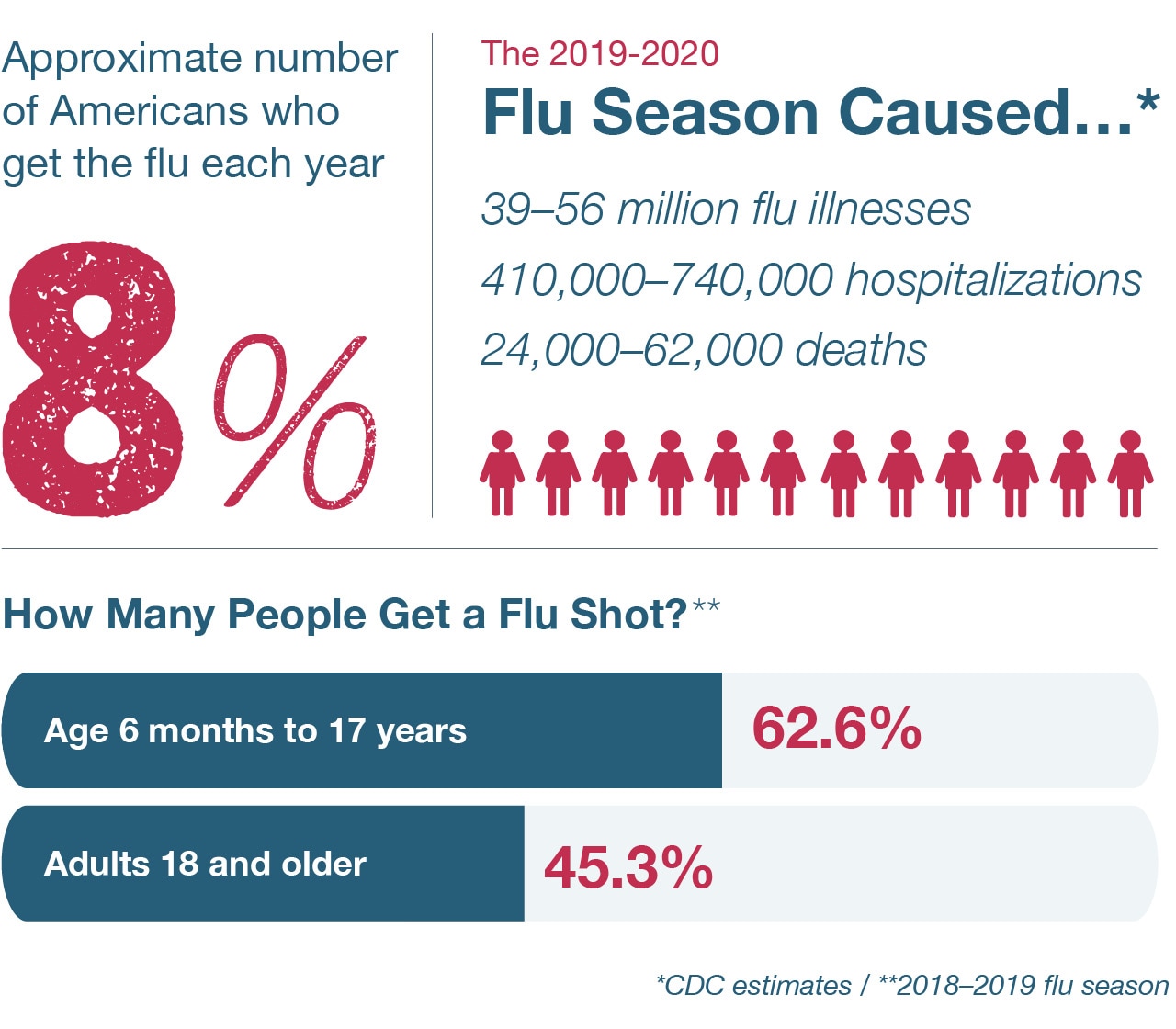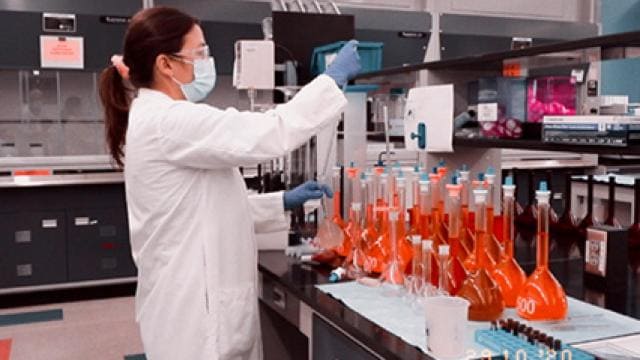We Need More Screen Time — No, Not That Kind


Health for all, Hunger for none

Bayer is a global enterprise with core competencies in the Life Science fields of health care and agriculture.

As a leader in healthcare, Bayer provides innovative solutions designed to prevent, alleviate and treat diseases.

Bayer provides tailored solutions for farmers to plant, grow and protect their harvests using less land, water and energy.

Even during a challenging pandemic, it’s critically important to stay up to date with routine health screenings.
Always consult your health care provider with questions or concerns you may have regarding your health.
Going to the doctor’s office for your regular checkups has probably been on the back burner. As the COVID-19 pandemic hit the country in early 2020, many patients chose to stay home and delay or cancel regular visits. Similarly, many health care providers temporarily restricted operations as they figured out how to comply with new health requirements. All that means that many of us are overdue for the checkups, screenings and immunizations that are critical to staying healthy.
“Some of the types of preventative services that require more face-to-face contact, like lab testing, or procedures like a colonoscopy, or radiology tests like mammograms, they did go down during the pandemic,” says Dr. Alex H. Krist, chairperson of the U.S. Preventive Services Task Force and a family physician in northern Virginia.
The numbers for those drops are shocking. From March 15 to June 16, breast cancer screenings fell by 63% compared to a normal year.1 Colon cancer screens fell by 64% and cervical cancer exams dropped 67% in the same period, according to Epic Health Research Network.1

Because the pandemic may continue to affect the nation for some time, it’s important to reschedule any missed appointments to stay healthy during our “new normal.” Routine health immunizations and screens can help you and your doctor catch the early warning signs of more severe problems. And the earlier a disease is detected, the sooner you can begin a course of treatment.
Across the board, visits to doctor’s offices, hospitals and other medical providers for nonemergency treatment fell significantly in spring 2020. That applied even more so to the types of cancer screenings that often require close-up physical contact between doctor and patient, including breast and colon cancer screens. Early in the pandemic, for instance, certain screenings to monitor breast cancer recurrence dropped by 17.4%, while tests for ovarian cancer monitoring fell 33.8%.3

On the one hand, that made sense: we were all trying to limit our travel and contact with other people to avoid spreading the coronavirus, and medical offices may have been required to close due to local quarantine orders. But that came at the expense of critical testing.
While those fears of a new virus are understandable, skipped screenings raise concerns among doctors and medical professionals, because any delay in the diagnosis of a problem can make treatment more difficult. One recent study suggests that skipped or delayed cancer screenings during the start of the COVID-19 pandemic could lead to an additional 10,000 deaths from breast and colorectal cancer alone over the next decade.4
“The longer you wait, there’s always the risk of something growing in that time. The most important aspect is the patient. You want to detect as early as possible,” says Dr. Habib.
The simple answer: Regular exams and checkups can potentially identify health issues before you know something is wrong.
“Early detection of diseases may result in better treatment and management, which reduces the risk of complications, thus increasing the chances of better health outcomes,” says Dr. Rosa Coppolecchia, Director of U.S. Medical Affairs Cardiology, Consumer Health at Bayer.
More important, health screenings can allow you to begin taking action, like starting preventive medication, sooner.

“We always are worried about missing things,” says Dr. Krist. “Part of the idea of screening for breast and colon cancer is that we have data that says by checking for these and finding them early, we have interventions that we can begin that improve health outcomes for patients.”
At Bayer, we know that once cancer has been detected, there are many ways to treat patients. Bayer has six cancer drugs on the market and several more compounds in development, and our drugs have already treated more than 1.3 million worldwide. Plus, even during the coronavirus crisis, Bayer has been working behind the scenes to ensure critical cancer medications can still reach patients.
Missing out on checkups or screenings can also pose difficulties for providers trying to follow a regular course of treatment. If your doctor has you on a six-month schedule for a cancer screen, for instance, “Do you skip the one you missed? How do you get back on track? There have been a lot of questions on what to do there,” says Dr. Habib.
It’s not just conditions like cancer that are affected, of course. During an in-person visit your physician may run blood tests to check your cholesterol level or blood sugar, evaluate you for cardiovascular issues, provide you with important immunizations or monitor the effectiveness of your current prescriptions.
“It really is about preventing the development of illnesses or finding them earlier when we can do something about them,” says Dr. Krist. “Our ultimate goal is really to improve the quality and the length of life for people.”
You know it’s wise to stay home when possible and maintain social distancing. Is it even safe to go into a health care facility? The answer is “yes” for most patients, though you may still wish to consult with your doctor first.
“Anyone who’s wondering whether they should be making appointments, it’s very reasonable to check in with their doctor,” says Dr. Krist.
Health care providers are taking a multilayered approach to keeping all patients safe. While it varies from location to location, common steps include:
“In my group of practices, we’ve been increasing our face-to-face contacts and starting to catch up on some of those tests, but we’re also watching the local situation,” adds Dr. Krist. “If pandemic rates and infection rates go up in the community, we may back off from some of those again in the fall and winter here, but we don’t know what’s going to happen.”
The use of telehealth is also expanding: Rather than going to your doctor’s office in person, you can consult with them over a video chat. That’s a great alternative to in-person visits for many issues. And, if you have an in-person screening for a health concern, your doctor may be able to follow up via a virtual visit. For instance, an in-person bloodwork test could be followed by a virtual appointment.

Dr. Krist also adds that telehealth allows doctors to consult on several issues that have become more widespread during the pandemic: depression, unhealthy alcohol use, and diet and exercise issues that may have resulted from stay-home orders. “A lot of cardiovascular health can be done virtually, and some things are more important with the stresses of this moment, like eating right and exercise,” he says.
Maybe you usually skip getting your flu shot. Or maybe you think that, as you try to avoid visits to doctors’ offices, you’ll skip it this year. However, it’s critical to have an influenza shot this year for the following reasons:

Take a closer look at the chart to see which screenings you may need to begin.
Generally, your doctor will help recommend the checkups and screenings you should have at different stages of your life. While there are established guidelines, you may need to start some earlier than normal if you have certain risk factors for disease. If you’re ever uncertain about what screenings you need, be sure to ask.
“Having that conversation early with your doctor is important,” says Dr. Habib.

It’s only natural that more routine screenings took a back seat to worries about the novel coronavirus this year. But as the pandemic continues to be part of our daily life, make sure you still schedule those annual screenings that you may have put off. Early detection can make a huge difference in the treatment and outcome of many diseases and help you stay fit and healthy as you age. And after spending so much time cooped up at home the past several months, this may be the only type of screen time you need more of right now.
ILLUSTRATIONS: MIKE ELLIS / ANIMATION: DAVE GRAW
References
1 https://ehrn.org/delayed-cancer-screenings-a-second-look/
2 https://www.commonwealthfund.org/publications/2020/aug/impact-covid-19-pandemic-outpatient-visits-changing-patterns-care-newest
3 https://www.komodohealth.com/insights/2020/04/routine-chronic-disease-screenings-and-oncology-biomarker-tests-plummet-during-covid-19
4 https://science.sciencemag.org/content/368/6497/1290
5 https://ehrn.org/telehealth-fad-or-the-future/
6 https://www.cdc.gov/flu/season/faq-flu-season-2020-2021.htm
7 https://www.ucsf.edu/news/2020/09/418406/why-covid-19-means-you-need-flu-shot-year
8 https://www.cdc.gov/flu/highrisk/heartdisease.htm



